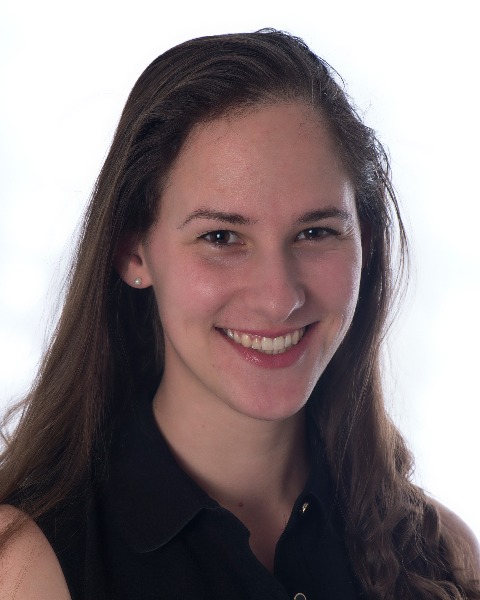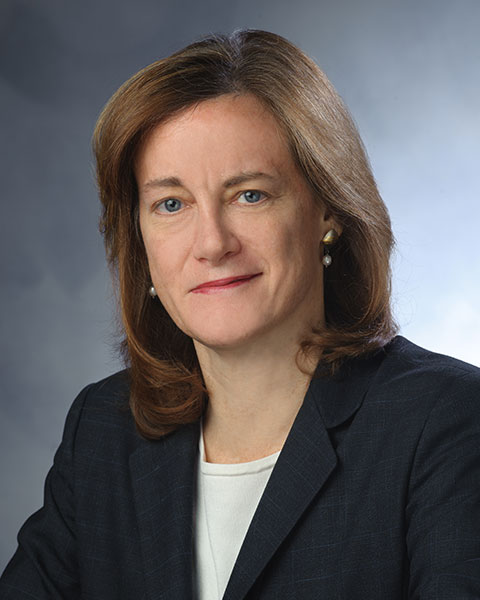
Modernizing Substance Use Disorder Coverage in Medicare: Innovative Policy Proposals
-
Register
- Non-Member - $39
- Regular Member - $29
- Retired - $29
- Early Career Physician - $29
- Resident - $19
- Student - $19
- Associate - $19
- ASAM Staff - Free!
- International Member - $29
- Emeritus Member - $29
- Provisional Member - $29
- Fellow Member - $29
- Honorary Member - $29
- CRT Member - $29

Modernizing Substance Use Disorder Coverage in Medicare: Innovative Policy Proposals
Recorded: Thursday, March 31, 2022 - Sunday, April 3, 2022
On-Demand Session
Overview
This 1-hour, on-demand session from the ASAM 53rd Annual Conference explains what Medicare covers, including recent policy changes; where gaps remain; and why systemic reform is needed to improve access to substance use disorder care in the community.
Medicare?s coverage of substance use disorder (SUD) treatment is strikingly limited and out of sync with evidence-based models, the current care delivery system, and most other health care financing systems. Medicare is also not subject to the Mental Health Parity and Addiction Equity Act, which protects people with SUD and mental health conditions from discrimination. As a result, the millions of Medicare beneficiaries with SUDs receive inadequate, if any, treatment. This presentation will identify the effect of Medicare gaps on patient care, models for reimbursing SUD services not currently covered, and areas for provider involvement in advocating for these necessary changes to meet the growing demand for SUD treatment for Medicare beneficiaries.
The target audience for this Introductory level session includes physicians, nurse practitioners, physician assistants, other clinicians, researchers, residents, fellows, students, and counselors.
This session addresses the following ACGME Competencies: System Based Practice.
Learning Objectives
Upon completion, learners will be able to:
- Identify gaps and barriers in Medicare coverage for substance use disorder care, treatment, and prevention.
- Identify and understand the ways in which application of the Parity Act in Medicare could address systemic problems for beneficiaries to access quality substance use disorder care.
- Apply this new research to advocate for systems level change to improve health outcomes for Medicare patients with substance use disorders.
Registration Rates
| Rate Description | Rate |
| ASAM Member | $29 |
| Non-Member | $39 |
| Associate Member | $19 |
| Resident Member* | $19 |
| Student Member* | $19 |
*Residents, Fellows-in-training, Interns, and Students must join ASAM to receive a discounted registration rate. Click here to become an ASAM member. National and Chapter membership dues apply. There is no charge for Students to become a Member, but verification of student status is required.
Membership Question? Call ASAM at 1.301.656.3920, email us, or view the ASAM website for more information.
Refunds & Cancellations
All ASAM e-Learning Center refund requests must be made in writing to education@asam.org within 90 days of purchase. Those requesting refunds for courses that are in progress will receive partial refunds or e-Learning Center credit. Automatic full refunds will be made for any course with a live-course component that has been cancelled.
Registration Deadline: 05/01/2025
Course Instructions
- Click on the Contents tab to watch the on-demand recording.
- Click Complete Post Test to answer multiple choice questions. Participants will have 10 attempts to pass and must answer 2 out of 3 questions correctly.
- Click Complete Evaluation to provide valuable activity feedback. Scroll down on all questions as there may be answer options that expand past the size of the window.
- Click the button Claim Medical Credits in the box titled Claim Credits & Certificate. Choose the type of credit and click submit. Click the button View/Print Certificate to save or print your certificate. You can view/print your certificate at any time by visiting the ASAM eLearning Center, clicking Dashboard, and clicking Transcript/Achievements.
Need Assistance?
For assistance logging in, accessing activities, claiming credit, or for other questions or concerns, please check the FAQ page or e-mail Education@ASAM.org
ASAM is proud to offer Essential Accessibility to ensure our website is accessible and functional for all our learners while providing free assistive technology for people with the widest possible range of abilities.

Deborah Steinberg
JD
Deborah Steinberg, J.D. is a Health Policy Attorney at the Legal Action Center where she advocates for state and federal policies to expand access to comprehensive and equitable substance use disorder and mental health care. She co-leads the Center's Medicare Addiction Parity Project which seeks to improve Medicare's coverage of substance use disorder treatment. Deborah previously served as an Equal Justice Works Fellow at Health Law Advocates, where she developed and implemented a project to challenge barriers to mental health and substance use disorder care for low-income residents of Massachusetts through direct client representation and state-based advocacy. She graduated from Vassar College with a B.A. in Psychology and earned her J.D. from Georgetown University Law Center.

Tami L. Mark
PhD, MBA
Tami L. Mark, PhD, MBA is a Senior Director at RTI International and an internationally known expert on behavioral health financing and delivery systems. Dr. Mark has authored more than 100 scholarly journal articles and numerous government reports on behavioral health financing and delivery. She was a contributing author to healthcare systems chapter of The Surgeon General’s Report on Alcohol, Drugs, and Health. Dr. Mark received a PhD in Health Economics from Johns Hopkins University.

William Parish
PhD

George Kolodner
MD, FASAM
Dr. George Kolodner is an addiction psychiatrist who specializes in the outpatient treatment of substance use disorders. After receiving his M.D. from the University of Rochester, he completed his psychiatric training at Yale University. In 1973 he designed the first intensive outpatient treatment program (IOP) in the country. By adding withdrawal management on the front end and non-intensive continuing care on the back end, he created a comprehensive outpatient model for the treatment of substance use disorders. His ASAM activities include serving as the lead editor of the Withdrawal Management section of the 3rd edition of ASAM Criteria. Dr. Kolodner is also active teaching about addictions at the Georgetown University School of Medicine, where he is a Clinical Professor of Psychiatry.
CME, CE, CEU and Other Credit Types

ACCME Accreditation Statement
The American Society of Addiction Medicine is accredited by the Accreditation Council for Continuing Medical Education (ACCME) to provide continuing medical education for physicians.
AMA Credit Designation Statement
The American Society of Addiction Medicine designates this enduring material for a maximum of 1 AMA PRA Category 1 Credits™. Physicians should claim only the credit commensurate with the extent of their participation in the activity.
NAADAC, the Association for Addiction Professionals
This activity has been approved by the American Society of Addiction Medicine, as a NAADAC Approved Education Provider, for educational credits. NAADAC Provider #295, ASAM is responsible for all aspects of the programming.
California Association for Drug/Alcohol Educators (CAADE)
This educational program is approved by CAADE: #CP40 999 1222.
California Association of DUI Treatment Centers (CADTP)
This educational program is approved by CADTP: #205.
California Consortium of Addiction Programs and Professionals (CCAPP)
This educational program is approved by CCAPP: #OS-20-330-1222.
Continuing Education Credits (CEUs)
Non-physician participants will receive a certificate of attendance upon completion of the activity and an online evaluation confirming their participation. Participants should submit his/her certificate of attendance to their professional organization/institute.
Maintenance of Certification (MOC) or Continuing Certification Programs (CCP)
American Board of Medical Specialties (ABMS)
Through the American Board of Medical Specialties (“ABMS”) ongoing commitment to increase access to practice relevant Continuing Certification Activities through the ABMS Continuing Certification Directory, The ASAM 53rd Annual Conference has met the requirements as a MOC Part II CME Activity (apply toward general CME requirement) for the following ABMS Member Boards: Allergy and Immunology, Anesthesiology, Colon and Rectal Surgery, Family Medicine, Medical Genetics and Genomics, Nuclear Medicine, Physical Medicine and Rehabilitation, Plastic Surgery, Preventive Medicine, Psychiatry and Neurology, Radiology, Thoracic Surgery, Urology
American Board of Preventive Medicine (ABPM)
The American Board of Preventive Medicine (ABPM) has approved this activity for a maximum of 1 credit towards ABPM MOC Part II requirements.
American Board of Anesthesiology (ABA)
This activity contributes to the CME component of the American Board of Anesthesiology’s redesigned Maintenance of Certification in Anesthesiology TM (MOCA®) program, known as MOCA 2.0®.
American Board of Pediatrics (ABP)
Successful completion of this CME activity, which includes participation in the activity, with individual assessments of the participant and feedback to the participant, enables the participant to earn a maximum of 1 MOC point in the American Board of Pediatrics’ (ABP) Maintenance of Certification (MOC) program. It is the CME activity provider’s responsibility to submit participant completion information to ACCME for the purpose of granting ABP MOC credit.
American Board of Internal Medicine (ABIM)
Successful completion of this CME activity, which includes participation in the evaluation component, enables the participant to earn up to 1 Medical Knowledge MOC point in the American Board of Internal Medicine’s (ABIM) Maintenance of Certification (MOC) program. Participants will earn MOC points equivalent to the amount of CME credits claimed for the activity. It is the CME activity provider’s responsibility to submit participant completion information to ACCME for the purpose of granting ABIM MOC credits.
American Board of Surgery (ABS)
Successful completion of this CME activity, which includes participation in the evaluation component, enables the learner to earn credit toward the CME and/or Self-Assessment requirements of the American Board of Surgery’s Continuous Certification program. It is the CME activity provider's responsibility to submit learner completion information to ACCME for the purpose of granting ABS credit.
American Board of Psychiatry and Neurology (ABPN)
Successful completion of this CME activity can be used to satisfy the American Board of Psychiatry and Neurology’s (ABPN) CME requirement for Maintenance of Certification program.
American Board of Addiction Medicine (ABAM)
Successful completion of this activity can be used to satisfy the American Board of Addiction Medicine (ABAM) Tmoc credit requirements.
Royal College of Physicians and Surgeons of Canada (RCPSC)
Royal College Fellows can use participation in Accredited Continuing Medical Education to earn Section 3 Credits.
Disclosure Information
In accordance with disclosure policies of ASAM and the ACCME, the effort is made to ensure balance, independence, objectivity, and scientific rigor in all CME activities. These policies include mitigating all possible relevant financial relationships with ineligible companies for the Planning Committees and Presenters. All activity Planning Committee members and Faculty have disclosed relevant financial relationship information. The ASAM CME Committee has reviewed these disclosures and determined that the relationships are not inappropriate in the context of their respective presentations and are not inconsistent with the educational goals and integrity of the activity.

